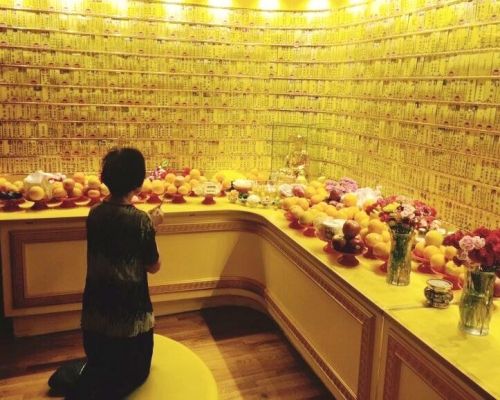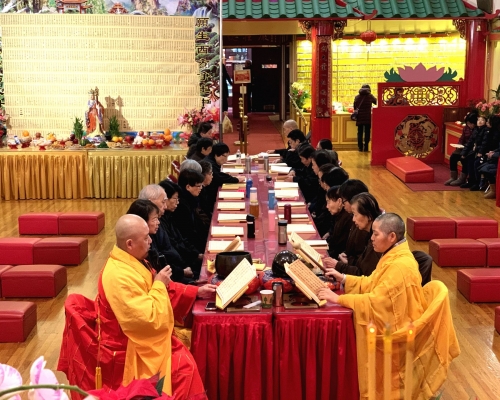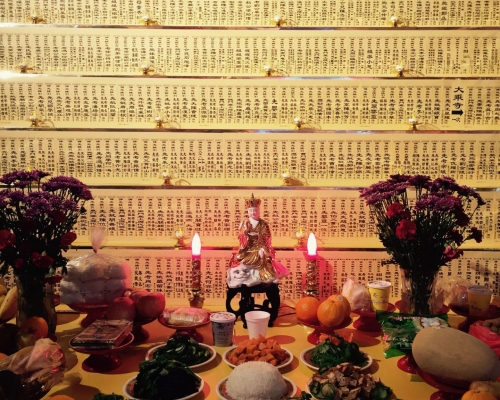In order to advocate and promote the virtues of gratitude and filial piety, Mahayana Temple will hold [Qing Ming Memorial Ceremony], [Ullambana Ceremony], and [Winter Solstice Ceremony] through this year at both Retreat and City Campus. The merits of the practice will be dedicated to our ancestors and departed loved ones. May they be reborn into the Western Pureland and reach the Buddha’s path.
Qingming, also called Tomb Sweeping Day, is a day to remember and honour one’s ancestors. Young and old pray before their ancestors, weed and sweep the family graves, clean the headstones, offer food, and light incense and burn imitation paper money. In doing so, the Chinese believe that the spirits of deceased ancestors will look after the family.
The Origin and Meaning of Ullambana and Making Offerings to Sangha Ullambana is for Buddhist laity to offer a meal to the Buddha and the Sangha as an act of reverence. The practice of Sangha offering has the power to transform and deliver all sentient beings. The merits thus acquired could liberate the deceased from the three suffering realms and allow the living to enjoy a life of abundance, good fortune and longevity. Therefore, by observing the practice of Ullambana Sangha Offering, all Buddhists can deliver their parents from the miseries of the three suffering realms.
The Winter Solstice (which falls on Dec. 20 this year) marks an important milestone. It’s the shortest day of the year and the longest night of the year, and signals a powerful transition point between seasons that is impossible to ignore. Because of this, it has been celebrated and revered in ancient civilizations, indigenous cultures, and various religions, all of which have their own rituals for taking advantage of the unique energy. It serves as a reminder for us to let everything go, and begin again—not just on December 21st or January 1st, but on any given day, at any given moment.
For more information, please contact us via info@mahayana.us or follow us at
-Wechat ‘纽约大乘寺’
-Instagram/Facebook ‘Mahayana Temple’.







